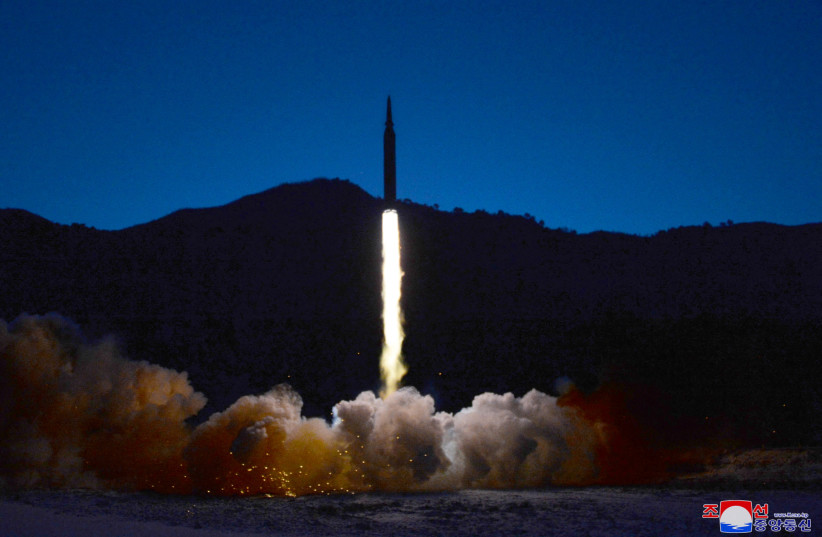Russia has increased the production of Kinzhal hypersonic cruise missiles, state defense corporation Rostec said on Saturday according to Interfax.
"It went into production a long time ago, initially we didn’t need such a quantity. We are now increasing,” Rostec CEO Sergey Chemezov reportedly said in a Zvezda Plus TV channel interview.
Chemezov said that the defense company had increased the production of some munitions by 50 times.
The Kh-47M2 Kinzhal is an air-launched hypersonic missile typically loaded on specialized MiG-31K warplanes. MiG-31Ks have been seen in Belarus on training missions in recent months, as well in Kaliningrad following tensions with Lithuania.
The hypersonic missile, capable of delivering conventional and nuclear warheads at high speeds while evading modern air defense systems, was first reportedly used to strike a Ukrainian position early in the war.

Another hypersonic missile system, the anti-ship 3M22 Zircon, caught the attention of security services in early January when it was deployed for the first time, aboard the frigate Admiral Gorshkov in the Atlantic Ocean. Admiral Gorshkov is set to engage in joint naval exercises with China and South Africa from February 17-27.
An air-launched version of the Zircon was also planned but was delayed in March to advance the maritime version as the Kremlin already had the Kinzhal in service.
The importance of hypersonic weapons in Russia is growing
The growing importance of hypersonic weapons in the Russian military and the navy, in particular, was emphasized by Navy chief Admiral Nikolai Yevmenov in a Saturday ceremony for a Northern Fleet missiles ship division.
Yevmenov also highlighted the importance of nuclear missile cruisers. This comes as Norwegian intelligence reports claimed that the Northern Fleet had deployed while armed with tactical nuclear weaponry for the first time since the Cold War.
Russian media reports on the increased production of munitions come not long after a Wednesday United Kingdom's Defense Ministry assessment that the Russian defense industry was having difficulty replenishing equipment.
Western intelligence has long reported that international economic sanctions have restricted the Russian defense industry's capability to make advanced guided munitions since it relied heavily on foreign electronics and materials for the production process.
On Sunday, the Ukrainian Military claimed that a batch of S-300 anti-aircraft missile systems had to be returned to the manufacturing plant.
